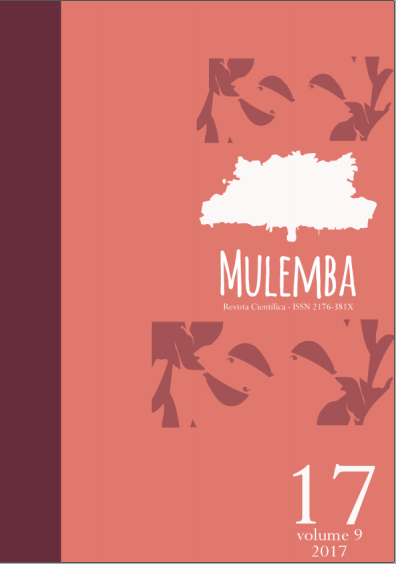Angolan Cinema and Literature in Times of Revolution: from a Vida Verdadeira de Domingos Xavier to Sambizanga
DOI:
https://doi.org/10.35520/mulemba.2017.v9n17a9662Keywords:
Angolan cinema, Angolan literature, flm adaptation, postcolonial studies, intersemiotic translation.Abstract
This paper aims to examine why and how (See HUTCHEON, 2013) Sarah Maldoror adapts Luandino's writingto audiovisual language. For this purpose, it will be addressed topics such as the state of the art of intersemiotic translation studies and flm adaptation; ideological correspondence between writer, flmmaker and the MPLA, and how this is reflected in their works; the agency of gender relations developed in both narratives; the amalgamation between man and nature and metaphors that takes in different languages; and fnally the poetic language of Luandino Vieira as a strategy of resistance and the parallels found by the flmmaker in her adaptation.Downloads
Download data is not yet available.
Downloads
Published
2017-12-21
Issue
Section
Articles
License
Authors who publish with this journal agree to the following terms:
- Authors retain copyright and grant the journal right of first publication with the work simultaneously licensed under a Creative Commons Attribution License that allows others to share the work with an acknowledgement of the work's authorship and initial publication in this journal.
- Authors are able to enter into separate, additional contractual arrangements for the non-exclusive distribution of the journal's published version of the work (e.g., post it to an institutional repository or publish it in a book), with an acknowledgement of its initial publication in this journal.
- Authors are permitted and encouraged to post their work online (e.g., in institutional repositories or on their website) prior to and during the submission process, as it can lead to productive exchanges, as well as earlier and greater citation of published work (See The Effect of Open Access).

